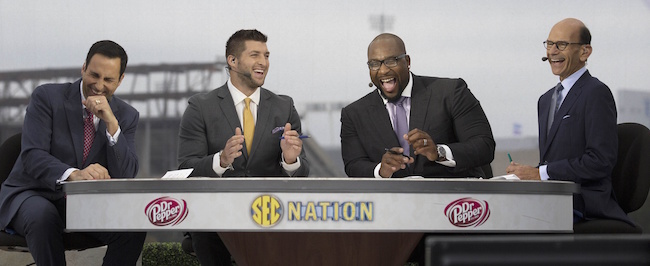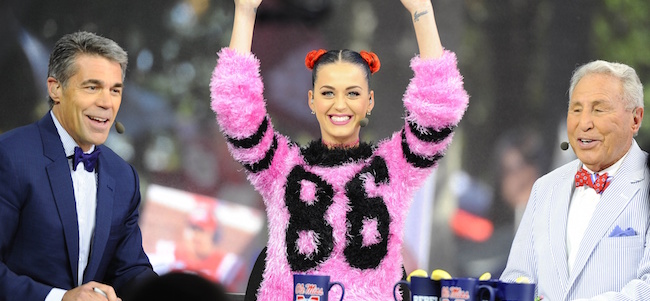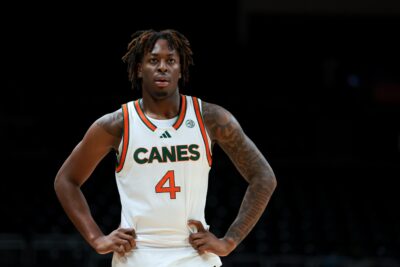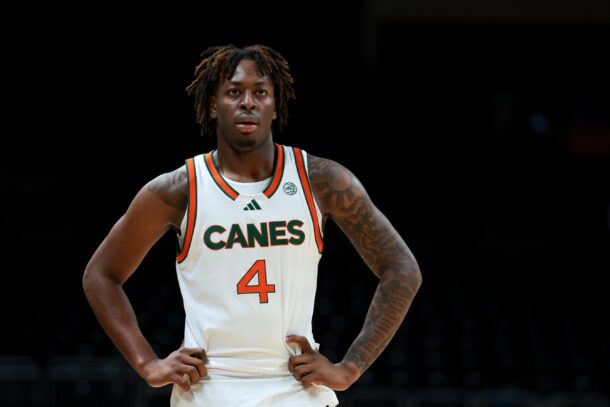The SEC is home to the nation’s best athletes and some of the best coaching minds in the game, but which individuals associated with SEC football actually wield the most power and can influence the entire sport? We take a look at the most powerful individuals below…
Greg Sankey
SEC Commissioner Greg Sankey may not have the resume and the reputation of Mike Slive, but by simply leading the most important conference in college football, Sankey is quite powerful. Sankey has been with the SEC since 2002 and was a major player in helping to reshape the SEC’s governance, enforcement and compliance program. Moreover, he played a key role in the new autonomy governance structure permitting the Power-5 conferences increased authority over a variety of policies including those involving student-athlete financial support. You might say that Sankey is the perfect person to guide the conference through the current era of college football.

While Sankey will undoubtedly wield influence over various rules and regulations pertaining to college football, he also holds power that his predecessor Mike Slive had as well. We’re talking about the power to expand the SEC and crush other conferences. Similar to the Big Ten’s Jim Delany, the leader of the SEC has the power to poach teams from other conferences and completely change the landscape of college football.
Jimmy Sexton
Sexton is the super agent who handles the contracts and negotiations of some of the SEC’s top coaches including names like Hugh Freeze, Nick Saban, Gus Malzahn, Jim McElwain, Will Muschamp and Lane Kiffin. Few individuals have had a larger hand in the skyrocketing coach salaries that have spread throughout the Southeastern Conference and college football. Sexton’s first client was a young Reggie White from the University of Tennessee, and his first coaching client was Tommy Tuberville.
It’s difficult to know for certain how much of the coaching market Sexton has controlled or directly influenced, but to assume he’s had no influence is silly. Sexton has perfected his methods in getting his coaches higher salaries and additional contract extensions. Remember all the talk about Texas offering Nick Saban $10 million a year which led to a raise at Alabama? More recently, when Sexton’s client Will Muschamp was fired as the Gators head coach, Florida AD Jeremy Foley hired another Sexton client in Jim McElwain to replace him. Sexton has his hands in a variety of the coaching moves around college football.
Paul Finebaum
Paul Finebaum may not be individually powerful, but his platform indeed is. Finebaum has masterfully positioned himself to be “the voice of the SEC” especially in the state of Alabama where, let’s face it, two of the top programs in the league call home. The fact that the SEC is headquartered in Birmingham, Ala., where Finebaum’s largest audience likely is doesn’t hurt as well. Finebaum’s daily radio show and appearances on the SEC Network television programming give Finebaum a unique position in the media covering the SEC.

Nick Saban
Long considered the top coach in college football, when Saban speaks, the world listens. But, it doesn’t necessarily mean that Saban dictates what happens in college football. Saban has voiced opinions on a number of topics such as uptempo offenses and the structure of the bowl system. The world doesn’t always agree with his point of view, but we all pay attention when he speaks.
On the field, you can at least partially credit Saban for the rise of the uptempo offense. After Saban’s defenses dominated college football and led to a run of three national titles between 2009 and 2012, more and more teams have shifted to an offensive style designed to counteract the bulky, physical defensive fronts typical of Nick Saban teams.
Lee Fitting
The producer of ESPN’s College GameDay helps drive much of the discussion in college football due to the enormous popularity of the ESPN Saturday morning show. While the topics covered on the show (remember SEC bias?) certainly get noticed, the locations do as well. Consider the ramifications of College GameDay choosing Oxford, Miss., as its broadcast location during the week of Alabama vs. Ole Miss last season.

The on-field upset of the visiting Crimson Tide was big, but the national exposure of the GameDay broadcast (helped by Katy Perry’s guest picking) was just as big for the school. As long as Fitting heads up the GameDay broadcast, he’ll continue to be a powerful individual in college football.
Who would you add to the list?
A graduate of the University of Florida and founder of Saturday Down South, Kevin is a college football enthusiast.






